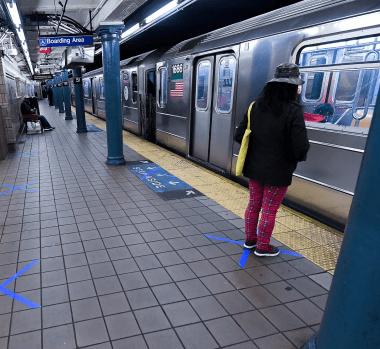- Three years after the start of the pandemic, half of U.S. subway riders haven't returned even as other aspects of life return to normal. (The Hill)
- City Lab compiled examples from all over the world of "open streets" created during the pandemic that have been made permanent.
- Elon Musk's Twitter misadventures are having an impact on Tesla, with the company selling fewer vehicles than expected last quarter. (New York Times)
- A "silver tsunami" is about to hit transit agencies, with half of bus maintenance workers expected to retire in the next three to five years. (Route Fifty)
- If we're going to have parking lots, why not cover them all with solar panels? (CNET)
- Drivers killed 313 people in the Washington, D.C. region last year, the second straight year with over 300 traffic deaths. (DCist)
- Reviving the Red Line light rail project is just one part of bringing equity and local control to Baltimore transit. (Governing)
- Denver's on-demand microtransit service is helping residents without cars who live in far-flung car-centric neighborhoods. (Denver Post)
- The Charleston Post and Courier praises the South Carolina DOT for no longer treating cyclists and pedestrians like afterthoughts.
- A car website argues that cars are people, too — two people, in fact. (Jalopnik)
Stay in touch
Sign up for our free newsletter
More from Streetsblog USA
Americans Demand Congress Fund Active Transportation In Next Infrastructure Bill — And Not Just The Bike/Walk Advocates
A "back to basics" surface transportation bill — as Republicans are seeking — would be devastating for road safety and small businesses.
Friday’s Headlines Take a Lot to Laugh, Take a Train to Cry
I ride on a mail train, baby. Can't buy a thrill.
Talking Headways Podcast: The Future of Transit
Yonah Freemark talks with Jeff Wood about the state of the trains across the world.
Are Roundabouts Just For Rich People?
And if not, how do we get more of them in the low-income neighborhoods that need life-saving infrastructure the most?
Thursday’s Headlines Need Alternatives
Economics 101: Competition brings down costs.
How Recreational Cycling Can Lead to Safe Streets For All
These cities are leveraging joy to fight for connected communities.






